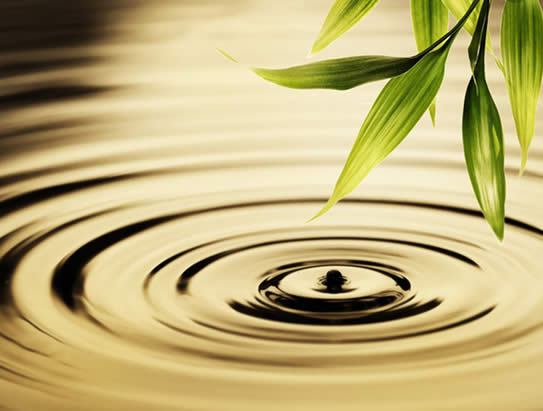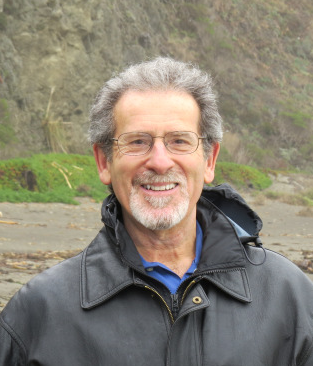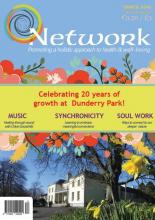Living in the Moment

In truth, moment by moment, we are confronted with the unknown. None of us knows what the next moment will bring. According to Buddhist psychology, with the arising of each moment we find ourselves momentarily uncertain and apprehensive, but these gaps are beneath our radar. Ego deflects attention away from this gap of uncertainty and ambiguity by provoking us to make a familiar gesture.
Sitting down with a friend or intimate we might immediately make small talk to break the awkwardness of silence and to avoid the nakedness of simply looking at one another, which is so revealing. The spinning of thoughts is a marvellous strategy for deceiving ourselves. It is similar to twirling a lit incense stick in a circular motion at night. It offers the visual illusion of an unbroken circle. Ego uses the same strategy with thoughts, images and feelings, creating the convincing sense of a solid and continuous entity, 'me' while reinforcing our familiar description of the world.
Moments of uncertainty are like being a foreign country where you don't speak the language and where you've lost both your wallet and your passport. In the Tibetan Buddhist teachings, that bare moment is called a bardo. This gap or interval is a wrinkle in time, between the ending of one thing and the beginning of the next. Here there are no familiar reference points to reinforce our sense of self. There are many potential possibilities in that gap, but we are not taught by our parents or our teachers to value this gap.
Mindfulness, on and off the cushion, is the practice of leaning into this edge of uncertainty, where we can glimpse the mechanics of experience directly. In the usual flow of our daily routines we do not objectively witness the infrastructure of what we commonly refer to as ’myself’. Buddhism teaches us that when our attention is distracted away from the experience of now-ness, there is a tendency to go on automatic pilot. We insert habitual thoughts, feelings and behaviour into the neutral space of now-ness, and are then reassured that we know who we are.
The history of ego is the constant effort to seek confirmation in the eyes of the world to reassure ourselves that our self-image or self-concept is reinforced. The result is that we create a cocoon of safety and security, but we risk repeating ourselves without ever feeling that our life is a genuine journey. The Buddhist path inspires us to cultivate the courage of a warrior so that we are more willing to open into that naked space of now-ness without overlaying it with our old patterns.
From a meditators’ point of view, the gap or the moment of now-ness, holds the secret of our egoless identity. It reveals that we are more a field of awareness rather than a solid centre in here. In moments of clarity we suspect that ego doesn't speak for our totality.
Ego colonizes our experiences, separating us from the larger source of energy that is the world. In the experience of now-ness, we do not stand out and apart from experience, but we’re it, the entire field of experience. We are not who we think are, and that thought is both terrifying and liberating.
In order for our spiritual path to evolve it is necessary to develop appreciation for neutral space, to actually communicate with those gaps before we go on automatic pilot. What would this look like? Can you remember a time when you paused momentarily just before you were about to bite into a peach, and suddenly inhaled its sweet fragrance or were delighted by its pastel red colour? Can you remember a time when you were fully present with a loved one, as a precious moment was unfolding, and your heart opened? Can you stop the world for a moment in order to hear the melodious chirping of a bird, or delight in the cool breeze moving across your face that playfully tussles your hair?
Initially these moments can be disorienting because they break up the hypnotic flow of our habitual activities. By interrupting our continuous mind static we challenge our tired categories that frame the world into good and bad, ugly and the beautiful. By actually pausing and learning to appreciate those moments of uncertainty, we enter into intimate relationship with the always naked quality of now-ness.
The experience of now-ness offers a brightness that allows for insight and understanding, and a heat that radiates both passion and compassion. When we open to this energy without ego's manipulations it inspires us to appreciate this wonderful natural world in spite of all the terrible things occurring on the planet.
Living within this openness is unchartered. There is no map, so the quality of experience is very fresh and revealing. The unfolding of our very lives provides the guidance necessary for life to be a journey, liberated from ego's tyranny.
 Ira Rechtshaffer holds a Ph.D. in Buddhist studies and has been a Buddhist meditation practitioner for 40 years. He has been a psychotherapist for the past 25 years, integrating spiritual vision with psychological process in an effort to return ‘soul’ to the helping relationship. Ira’s latest book ‘Mindfulness and Madness’, published by John Hunt Publishing is now available.
Ira Rechtshaffer holds a Ph.D. in Buddhist studies and has been a Buddhist meditation practitioner for 40 years. He has been a psychotherapist for the past 25 years, integrating spiritual vision with psychological process in an effort to return ‘soul’ to the helping relationship. Ira’s latest book ‘Mindfulness and Madness’, published by John Hunt Publishing is now available.
Latest Issue
Upcoming Events
-
17/04/2020 to 26/04/2020
-
18/04/2020
-
23/04/2020
-
15/05/2020 to 23/05/2020
-
16/05/2020 to 17/05/2020
Recent Articles
Article Archive
- February 2016 (3)
- March 2016 (2)
- April 2016 (2)
- May 2016 (3)
- June 2016 (1)
- July 2016 (1)
- January 2017 (6)
- February 2017 (4)
- March 2017 (11)
- April 2017 (9)

